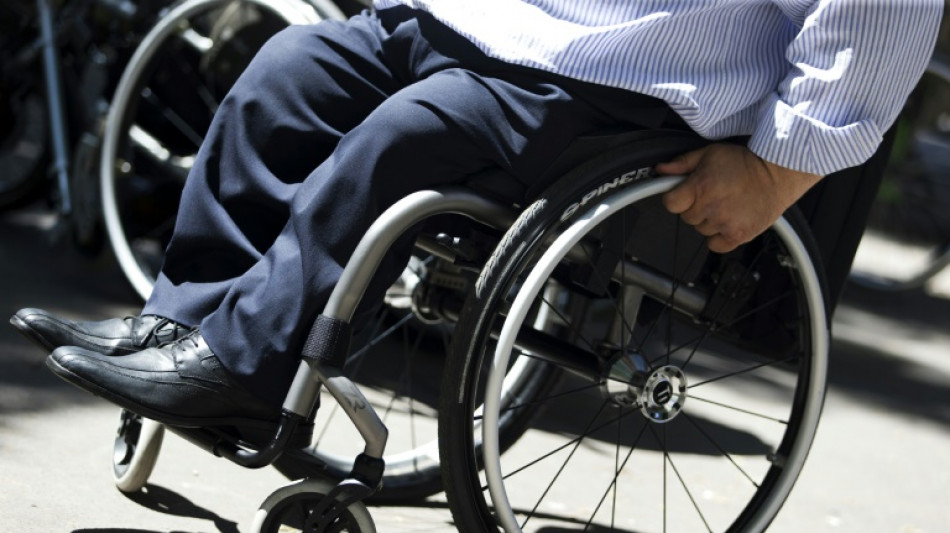
-
 French lawmakers reject wealth tax proposal in budget debate
French lawmakers reject wealth tax proposal in budget debate
-
Premier League blames European expansion for lack of Boxing Day games

-
 Bublik sets up Auger-Aliassime semi-final at Paris Masters
Bublik sets up Auger-Aliassime semi-final at Paris Masters
-
World's most expensive coffee goes on sale in Dubai at $1,000 a cup

-
 Trump stirs global tensions, confusion with nuclear test order
Trump stirs global tensions, confusion with nuclear test order
-
Panic across US as health insurance costs set to surge

-
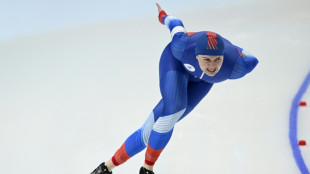 Court eases ban on Russian lugers but Olympic hopes on thin ice
Court eases ban on Russian lugers but Olympic hopes on thin ice
-
England captain Itoje targets Autumn Nations clean sweep

-
 Calmer Sabalenka sets sights on WTA Finals crown
Calmer Sabalenka sets sights on WTA Finals crown
-
Spurs boosted by Romero return for Chelsea clash

-
 Sudan's RSF claims arrests as UN warns of 'horrendous' atrocities in Darfur
Sudan's RSF claims arrests as UN warns of 'horrendous' atrocities in Darfur
-
US says 'non-market' tactics needed to counter China's rare earth dominance
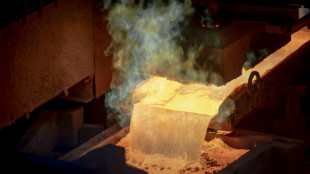
-
 China sends youngest astronaut, mice to space station
China sends youngest astronaut, mice to space station
-
From adored prince to outcast, Andrew's years-long fall from grace

-
 Rodri return fuels Guardiola belief in Man City title challenge
Rodri return fuels Guardiola belief in Man City title challenge
-
China holds send-off ceremony for space station astronauts

-
 Barcelona to show off unfinished Camp Nou with public training session
Barcelona to show off unfinished Camp Nou with public training session
-
Turkish court jails 11 for life over deadly hotel inferno

-
 Auger-Aliassime ends Vacherot run to reach Paris Masters semis
Auger-Aliassime ends Vacherot run to reach Paris Masters semis
-
Australia captain Wilson denies Wallabies use 'dangerous' breakdown tactics
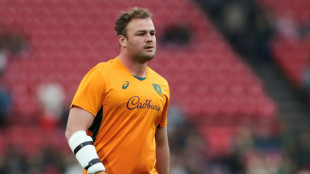
-
 'Populists can be beaten': Dutch centrist Jetten claims election win
'Populists can be beaten': Dutch centrist Jetten claims election win
-
China's suspension of rare earth controls applies to EU: official

-
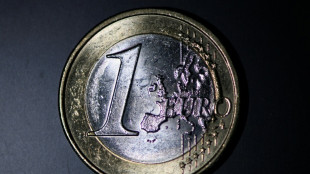 Italy complains about strong euro, urges ECB to cut rates
Italy complains about strong euro, urges ECB to cut rates
-
Louvre to get anti-ramming barriers by year end: minister

-
 Wall Street bounces on Amazon, Apple earnings
Wall Street bounces on Amazon, Apple earnings
-
AI giants turn to massive debt to finance tech race

-
 Japan PM says raised 'serious concerns' with Xi on South China Sea, Xinjiang
Japan PM says raised 'serious concerns' with Xi on South China Sea, Xinjiang
-
Shein set to open first physical store in Paris

-
 Turkish court jails 11 for life over deadly hotel fire
Turkish court jails 11 for life over deadly hotel fire
-
Hazlewood stars as Australia ease past India to win 2nd T20

-
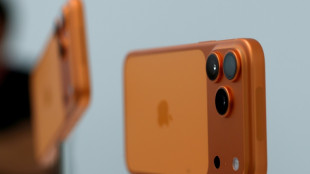 Stocks extend losses tracking AI, Fed and trade
Stocks extend losses tracking AI, Fed and trade
-
Arteta concerned for players' welfare in Arsenal fixture pile-up

-
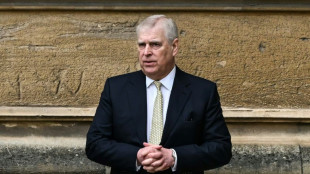 From adored prince to royal outcast, Andrew's protracted downfall
From adored prince to royal outcast, Andrew's protracted downfall
-
Maresca backs 'stupid' Delap to come good for Chelsea

-
 Pakistan, Afghanistan extend ceasefire, to hold another round of peace talks
Pakistan, Afghanistan extend ceasefire, to hold another round of peace talks
-
Sudan's RSF says arrests fighters accused of abuses in El-Fasher

-
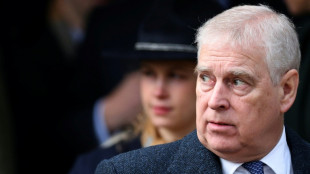 Key dates in the fall of Britain's former prince Andrew
Key dates in the fall of Britain's former prince Andrew
-
Cricket falls silent across Australia after teenager killed by ball

-
 Vinicius Junior in the clear over Clasico outburst
Vinicius Junior in the clear over Clasico outburst
-
UK welcomes king's move to strip Andrew of royal titles

-
 Liverpool must snap losing 'habit', says under-fire Slot
Liverpool must snap losing 'habit', says under-fire Slot
-
Bencic out of Hong Kong last eight as tennis injury list mounts

-
 Xi invites Canada PM to China in first meet in 8 years
Xi invites Canada PM to China in first meet in 8 years
-
Chinese defence minister seeks 'trust' with US but cautions over Taiwan

-
 India's Rodrigues beat anxiety and tears to become World Cup star
India's Rodrigues beat anxiety and tears to become World Cup star
-
China, Canada leaders hold first formal talks since 2017

-
 Nvidia to supply 260,000 cutting-edge chips to South Korea
Nvidia to supply 260,000 cutting-edge chips to South Korea
-
Camels replace cows as Kenya battles drought

-
 Endangered across west Africa, leopards thrive in I.Coast reserve
Endangered across west Africa, leopards thrive in I.Coast reserve
-
Risky gold rush drives young into Ivory Coast nature park

| RYCEF | -1.98% | 15.15 | $ | |
| BCC | 0.25% | 69.355 | $ | |
| CMSC | -0.88% | 23.85 | $ | |
| VOD | 0.5% | 12.03 | $ | |
| SCS | 0.09% | 15.975 | $ | |
| JRI | -0.04% | 13.865 | $ | |
| NGG | -1.1% | 75.225 | $ | |
| RIO | -0.15% | 72.095 | $ | |
| CMSD | -0.74% | 24.18 | $ | |
| RBGPF | 0% | 76 | $ | |
| RELX | -0.52% | 44.14 | $ | |
| BCE | -0.61% | 22.97 | $ | |
| AZN | -0.1% | 82.255 | $ | |
| BTI | 0.36% | 51.465 | $ | |
| GSK | -0.25% | 46.822 | $ | |
| BP | 0.64% | 34.995 | $ |

New hope to help advanced Parkinson's patients walk, sleep again
People with advanced Parkinson's disease often struggle to walk more than a few steps or sleep through the night, but new research offers hope of relief from these two debilitating symptoms.
Suffered by millions worldwide, the degenerative disease erodes motor functions and in its later stages often confines patients to a bed or wheelchair.
This is due to a condition called orthostatic hypotension, which occurs when a person stands up and their blood pressure drops, causing dizziness and even fainting after a couple of steps.
For Parkinson's sufferers, it happens because a regulator in the brain -- which normally ensures sufficient blood flows to the brain when we stand up -- has been disrupted.
But new French research published in the New England Journal of Medicine last week found that a spinal cord implant could help advanced Parkinson's patients get back on their feet.
- Quality of life improved -
Earlier this year neurosurgeon Jocelyne Bloch and Gregoire Courtine revealed that such an implant had enabled three paralysed people to walk again.
Both were also involved in the latest research, which tested a similar implant on a 48-year-old woman.
While the woman did not have Parkinson's, she had such similar symptoms -- including orthostatic hypotension -- that she was initially diagnosed with the disease.
For paralysed people, the spinal cord implant mimics how the brain sends electrical pulses to muscles, reconnecting a severed link.
But for orthostatic hypotension, it stimulates the regulator in the brain that senses the need to send more blood when people stand upright.
Before receiving the implant, the woman would faint after a taking a few of steps.
Three months after the surgery, she was able to walk more than 250 metres (820 feet) with the help of a walking frame, the study said.
"She is not cured, she would not run a marathon, but this surgery has clearly improved her quality of life," Bloch told AFP.
However it is a single case and further research is needed, particularly involving Parkinson's patients.
It is not yet certain that the form of orthostatic hypotension seen in Parkinson's patients can be fixed solely by stimulating the regulator the implant targets.
- Anti-insomnia pump -
Insomnia is another common scourge of the 10 million Parkinson's sufferers globally, more than three quarters of whom have sleep-related symptoms, according to the Parkinson's Foundation.
Sleep can be affected by uncontrolled shaking which wakes patients up, while another factor is a lack of a dopamine, common in people with Parkinson's.
The medication apomorphine is normally used to replace dopamine, lessening symptoms such as shaking and stiffness.
But when taken orally, the drug can cause dopamine to spike and then drop, leading to muscle spasms.
A device similar to an insulin pump that delivers continuous apomorphine throughout the night could solve the problem, according to a study published in the journal Lancet Neurology on Thursday.
Co-author Emmanuel Flamand-Roze led previous research indicating that such a pump would help with Parkinson's, but the new study looked at how it helped with sleep.
The randomised study found that those using the pump had "significantly improved" sleep compared to those who received a placebo.
Flamand-Roze told AFP that "the constraints linked to wearing a small pump" are much lower during the night, compared to carrying such a device around all day.
However because the study had a small sample size -- fewer than 50 people -- and focused on people at an already advanced stage of Parkinson's, further research is needed.
L.Dubois--BTB



